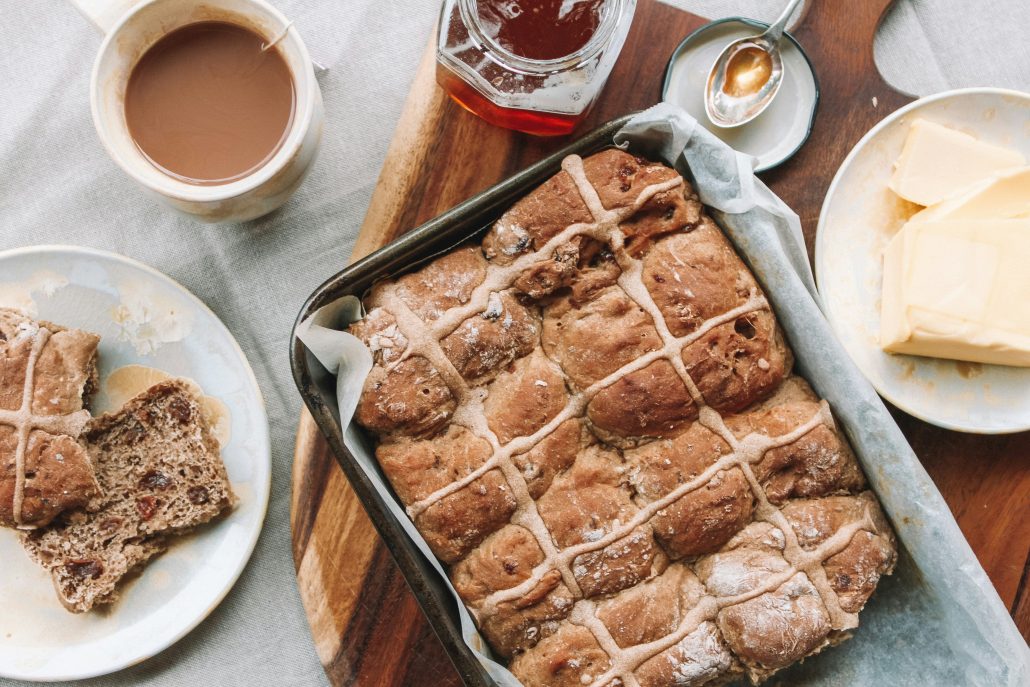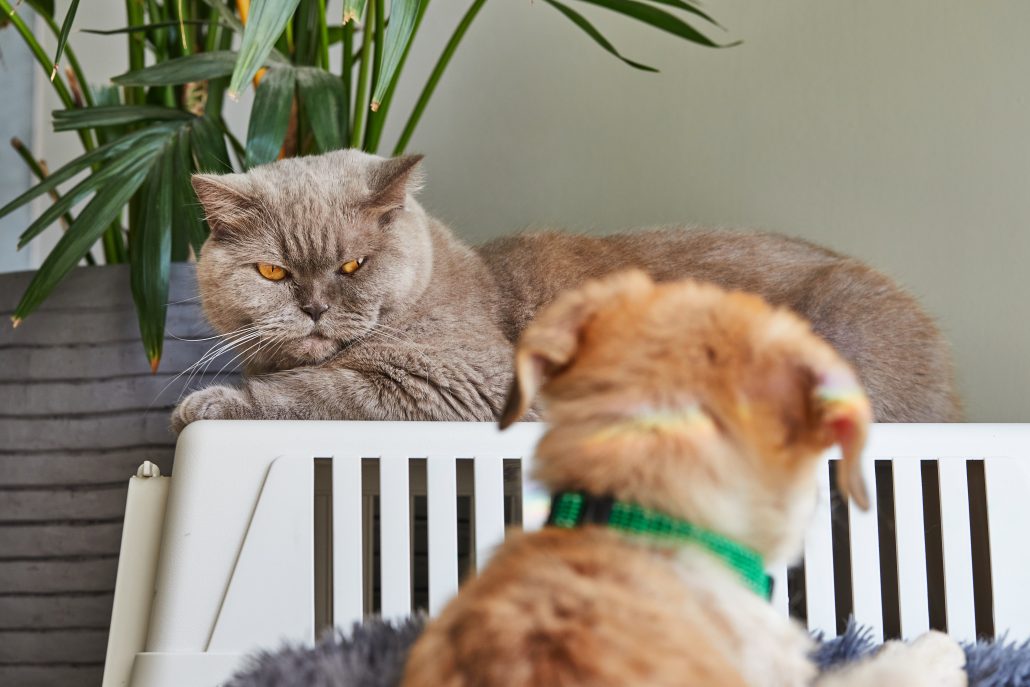
Easter is around the corner, and while most pet owners are aware of the dangers of chocolate there is another innocent-looking Easter treat that pose a significant risk to our furry friends: hot cross buns!
Whether it’s loaded with raisins, chocolate or just the classic spiced variety, hot cross buns can spell trouble for pets if they manage to get a nibble. In this post we outline why this traditional snack is best kept well away from our four-legged members of the family to keep them safe this easter season.
Why Are Hot Cross Buns Dangerous?
Hot cross buns are a quintessential part of many Easter celebrations. These treats are made from a soft, enriched dough infused with fragrant spices such as cinnamon, nutmeg, and sometimes cloves. Traditionally, they contain dried fruits like currants, raisins, or sultanas and can be glazed with a sugary icing or syrup after baking.
Sounds delicious, right? For humans, they can be!
But many of these ingredients can be incredibly dangerous for both dogs and cats alike. Sultanas, raisins and currants are extremely poisonous to dogs. When ingested many pets develop vomiting, diarrhoea, abdominal pain and even kidney failure.
Today, we see many variants of this Easter food. In hot cross buns that don’t contain dried fruit, many will contain chocolate, instead, which is also a known toxin for dogs. Even the plain hot cross buns can be very high in sugar which is just as bad for your pet’s teeth, and may even upset your dog’s stomach leading to vomiting or diarrhoea.

How Do I Know If My Pet Has Eaten A Hot Cross Bun?
Our pets can be sneaky and accidents happen. If your pet has managed to get into the hot cross buns, symptoms will typically show up within 6 to 24 hours. While some symptoms show up pretty quickly, like vomiting or diarrhea, keep in mind that more serious issues like kidney failure can take a few days to appear – so keeping a close eye is crucial!
- Vomiting shortly after consuming the bun
- Diarrhea or runny stools
- A sore belly or signs of abdominal discomfort
- Drinking lots of water
- Peeing more than usual
- Not drinking or eating
- Feeling unusually tired or weak
- Not urinating for over 24 hours
If you notice any of these symptoms and you suspect they may have eaten something they should not have, it is important to see your local emergency vet as soon as possible. They’re the best people to diagnose and treat your pet’s condition. And remember, if you’re ever worried about your pet’s health, it’s always a good idea to reach out to a professional. Better safe than sorry!
Treating Your Pet
Preventing Easter Accidents
Easter is a time for celebration, but it’s also a time to be extra mindful of our furry friends. With all the festive goodies and decorations around, it’s easy for accidents to happen. Here are some simple tips to help keep your pets safe and avoid any Easter mishaps:
Keep Treats Out of Reach: Easter treats like hot cross buns, chocolate, and candies are delicious for us but dangerous for pets. Make sure all these goodies are stored safely out of reach of curious paws.
Be Cautious with Decorations: Easter baskets, plastic eggs, and other decorations can be tempting chew toys for pets. Ensure that these items are placed in areas your pets can’t access, and be mindful of any small parts that could pose a choking hazard.
Secure the Trash: After Easter meals, secure your trash can so your pets can’t rummage through leftovers. Discarded food and wrapping can also be harmful if ingested.
Monitor Festive Gatherings: If you’re hosting an Easter gathering, keep an eye on your pets and let guests know not to feed them scraps or treats. It’s easy for pets to be overlooked during the excitement of a party, so be sure to keep a close eye!
Create a Pet-Friendly Space: Set up a quiet, comfortable area for your pets where they can relax away from the holiday chaos. This space will help them feel safe and reduce the risk of them getting into things they shouldn’t.

Ensuring a Hoppy and Safe Easter for Your Furry Friends!
The dangers of treats like hot cross buns remind us how important it is to stay alert and proactive about our pets’ well-being. By being aware of the risks and knowing the signs of trouble, we can keep our furry friends happy and healthy.
If you ever find yourself in an emergency, don’t hesitate to give The House Call Vet a call. Our experienced team is always ready to jump in and help with expert care for your pets. Your pet’s health is our top priority, and we’re here to support you every step of the way. Remember, we’re just a phone call away whenever you need us!

